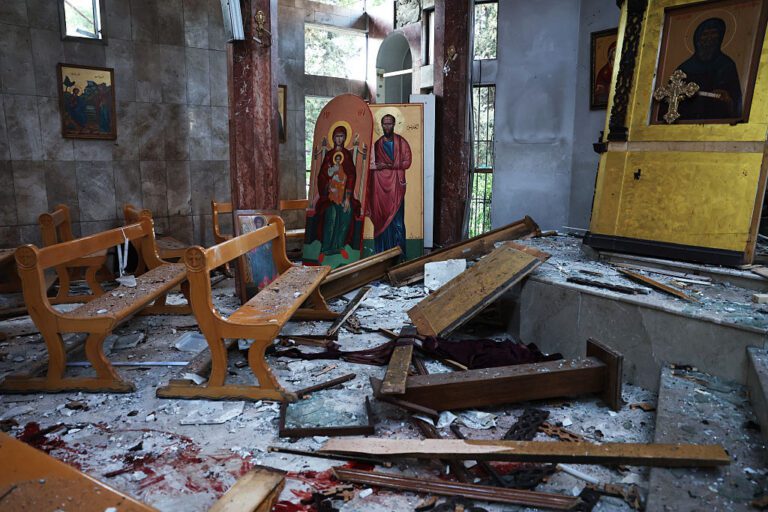Reports say Syrian terrorists killed at least 25 people in a suicide bombing at a church outside Damascus on Sunday (June 22) around 5pm.
During Sunday service at the Greek Orthodox Church in the Dweil’a area, gunmen first fired on the congregation of Maríaus Church, and then reported that members exploded the explosive vest as they tried to stop him. Another 63 people were injured in the attack. Syrian Home Affairs Ministry spokesman Nurededin Al Baba suggested that it was mounted by members of the Islamic State (IS), but the group did not claim responsibility for the massacre.
ISIS has maintained a low-level rebellion in Syria since President Ahmed Al-Sharaa’s government came to power in December, but the suicide bombing was reportedly the first violence in or near Damascus.
“The safety of places of worship is the red line,” Albaba said.
Hayat Taharil al-Sham (HTS), a Sunni Muslim group, is a former al-Qaeda affiliate in Syria, designated as a terrorist organization by the United Nations, the US and the UK, and is committed to protecting religious and ethnic minorities.
According to the Washington Institute, Al Shala’s group has been fighting for many years for many years.
The explosion at the entrance to the church led to the deaths of people inside and outside the building.
It was initially reported that 22 people were killed, but Sana, a state media outlet, said it rose to 25 on Monday (June 23) and that the remains, including children, have been recovered, citing the country’s health department.
The Greek Orthodox Church reportedly called on the Syrian interim government to “consider full responsibility.”
“The dangerous hands of evil have insisted our lives tonight, along with the lives of our loved ones who fell as martyrs during the evening divine liturgy,” the Greek Orthodox fathers in Antioch said in a statement.
“These terrorist acts will not halt the Syrian state’s efforts to achieve civil peace,” Home Minister Anas Hattab said in a statement.
Condemning the attack, Syrians’ UN envoy Geir Pedersen urged Syrians to “strait together by terrorism, extremism, instigation and rejecting targets,” according to the BBC.
IS once hosted 34,000 square miles of territory from western Syria to eastern Iraq, and has long targeted Syrian Christians and other religious minorities. The UN warns that despite the military defeat in 2019, IS and its affiliates will still pose a threat, according to the BBC.
“A report released in February warned that the group could use the Syrian transition to spike attacks and make the country a new hub for recruiting foreign fighters,” the BBC reported, noting that there are 1,500 to 3,000 fighters from Syria and Iraq.
All Arab news reported that other Christian sites were attacked at about the same time, but no one has been confirmed. Suicide bombings targeting the Monastery of Ibrahim Al-Khalil, near Damascus, other terrorists have placed explosive devices near Our Lady of Maxura, accepting “several churches” and Hama.
“The leaflet was also posted on the doors of these churches that read, ‘It’s your turn’,” the outlet reported.
Syrian officials reported last month that three people had killed as extremists and arrested four others in the Aleppo attack.
Syria ranked 18th on the 2025 World Watchlist of 50 countries that are the hardest to become Christians.
